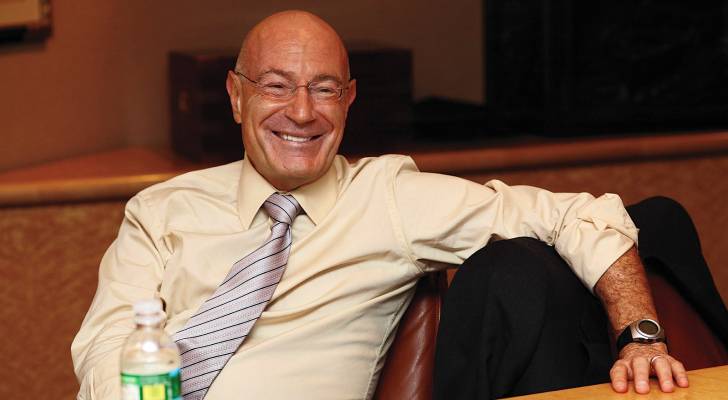Arnon Milchan (Credit: A. Perry Heller)
Hollywood's biggest hypocrite: How "Israeli" producer profited from Black oppression
He helped bring 12 Years a Slave to the screen — a powerful film about the brutality of slavery and the Black struggle for dignity. But behind the scenes, Arnon Milchan’s real-life history tells a very different story: one tied to hypocrisy and apartheid.
Milchan, an "Israeli" billionaire mogul, has produced over 130 films, including hits like Pretty Woman and Fight Club. His crowning achievement, however, came in 2014 when 12 Years a Slave won the Oscar for Best Picture, lauded for its unflinching portrayal of systemic racism and the brutal enslavement of Black people in America. The film was hailed as a step toward reckoning with historical injustices, and Milchan basked in the glow of its success. But beneath this veneer of social consciousness lies a darker truth: Milchan himself played a role in perpetuating a system of racial oppression that mirrors the very atrocities his film condemns.
Read more: Is "Israel" paying Hollywood to normalize its occupation?
Before he was rubbing elbows with A-listers in Hollywood, Milchan was a spy for the Israeli Occupation. And not just any spy — a key player in the Israeli Occupation's covert intelligence network, helping secure technology for the country’s secret nuclear program. But what is most jarring? His cozy relationship with apartheid-era South Africa.
Milchan openly admitted to working as a spy for "Israel’s" secretive nuclear agency, LAKAM. In the 1960s, Milchan played a key role in smuggling sensitive nuclear components into "Israel" — including nearly 1,000 krytrons, devices used to detonate nuclear bombs. According to US law, this would amount to a serious crime. But Milchan was never indicted or even interrogated by the FBI.
His espionage was not limited to tech smuggling. In the 1970s and 80s, Milchan acted as a shadow arms dealer between "Israel" and South Africa’s apartheid regime. He leveraged his connections to boost international support for South Africa's apartheid regime and supplied weapons — and even tritium, a radioactive material used in nuclear weapons — to repress Black South Africans. In return, Milchan secured uranium for "Israel".
The irony is staggering. This was not a passive role—he actively worked to promote the suffering of Black people, a group whose historical pain he would later profit from depicting in 12 Years a Slave.
Today, as conversations about racial justice, systemic oppression, and accountability grow louder in Hollywood and beyond, Milchan’s legacy serves as a stark reminder: storytelling alone cannot redeem silence or complicity.




